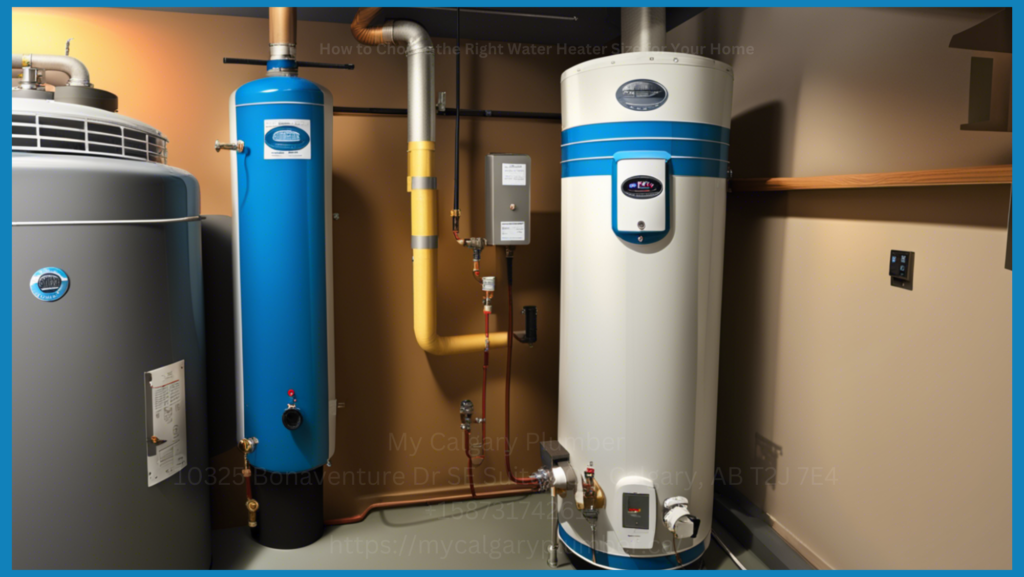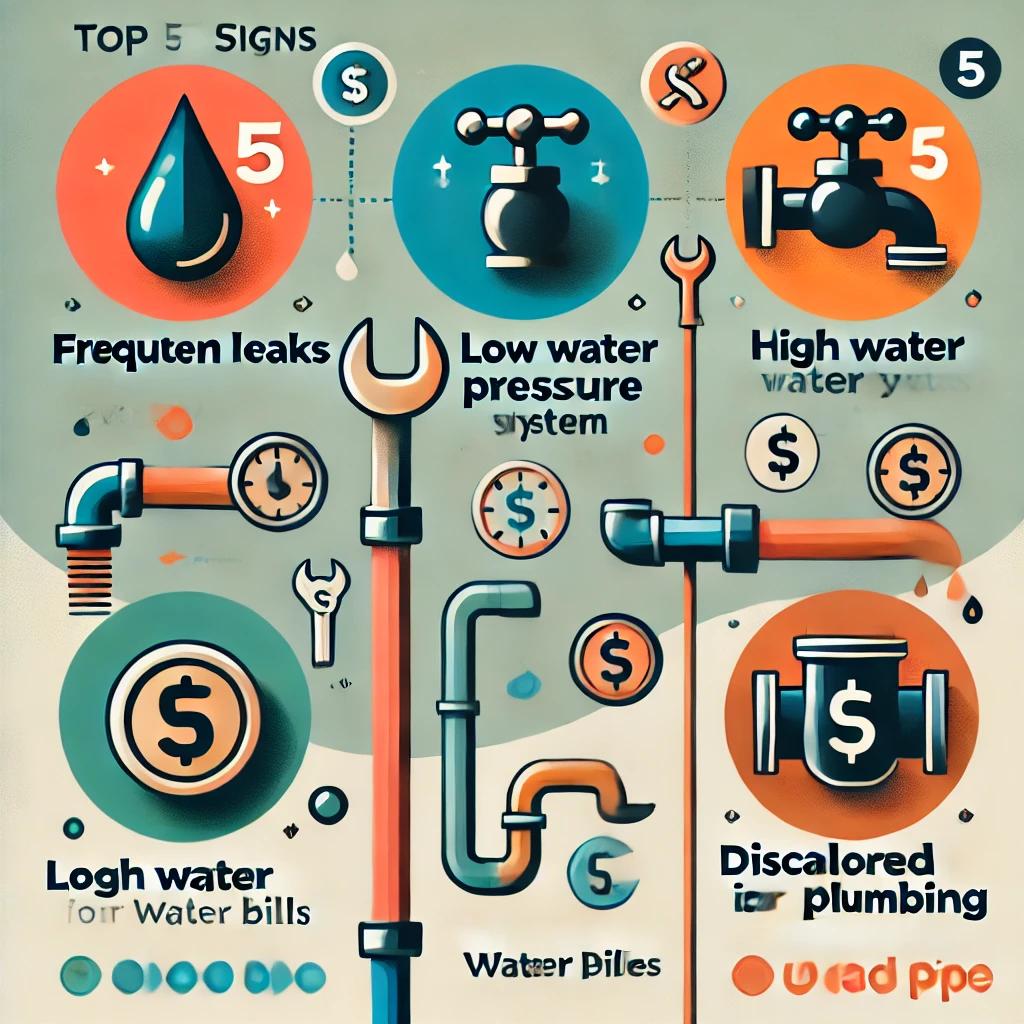How To Choose The Right Water Heater Size For Your Home
Selecting the right water heater size is essential to meet your household’s hot water needs efficiently. An undersized water heater may struggle to keep up with demand, while an oversized one can lead to higher energy bills. In this guide, we’ll walk you through the key factors to consider when choosing the right water heater size for your home, covering water heater types, household size, and water usage patterns.
Choosing the right size ensures that you have a consistent supply of hot water without wasting energy, helping you save on utility costs in the long run.
1. Types of Water Heaters and Their Sizing Requirements
Understanding the different types of water heaters is the first step in determining the correct size. The two main categories are tank water heaters and tankless water heaters, and each has unique sizing considerations.
1.1 Tank Water Heaters
Tank water heaters store a specific amount of hot water and keep it heated for use. Their size is typically based on tank capacity (measured in gallons) and the First Hour Rating (FHR), which indicates how much hot water the heater can provide in the first hour of usage.
1.2 Tankless Water Heaters
Tankless water heaters, also known as on-demand water heaters, heat water as needed instead of storing it in a tank. Sizing for tankless systems is based on flow rate (measured in gallons per minute) and temperature rise (the difference between the incoming water temperature and desired hot water temperature).
How To Choose The Right Water Heater Size For Your Home

2. Key Factors for Choosing the Right Water Heater Size
When deciding on the right size, consider your household size, peak usage times, and hot water demands. Here are the main factors to keep in mind.
2.1 Household Size and Usage Patterns
The size of your household directly impacts the amount of hot water needed. Larger households generally require larger water heaters to meet demand during peak hours, such as mornings and evenings.
Household Size and Suggested Tank Water Heater Capacity:
| Household Size | Suggested Tank Capacity |
|---|---|
| 1-2 people | 30-40 gallons |
| 2-3 people | 40-50 gallons |
| 3-4 people | 50-60 gallons |
| 5+ people | 60-80 gallons |
For tankless water heaters, you should determine the combined flow rate of the fixtures you plan to use simultaneously. For example, if you have two showers and a washing machine, add up their flow rates to get an accurate measure of your peak hot water needs.
2.2 Peak Hot Water Demand
Peak demand refers to the times when hot water usage is highest, such as during the morning or evening. Here’s how to estimate your household’s peak demand:
- Shower: 2-2.5 gallons per minute (GPM)
- Bath: 3-4 GPM
- Kitchen Sink: 1.5 GPM
- Laundry: 2 GPM
Add up the GPM requirements of the fixtures that may be used at the same time to determine your tankless water heater’s required flow rate. For tank systems, use peak demand to determine the FHR.
2.3 Temperature Rise and Climate Considerations
Temperature rise is the difference between the incoming water temperature and the desired hot water temperature. In Calgary’s colder climate, the groundwater temperature is typically low, meaning your water heater will need to work harder to heat the water.
Example Temperature Rise Calculation:
- Desired Temperature: 120°F
- Incoming Temperature (Calgary): 40°F
- Required Temperature Rise: 80°F
Tankless water heaters should be able to handle the GPM needed for your peak demand while accounting for the temperature rise.
3. Choosing Between Gas and Electric Water Heaters
Another factor to consider when choosing a water heater is the energy source. The two most common options are gas and electric water heaters, which can impact the size and performance of the unit.
3.1 Gas Water Heaters
Gas water heaters heat water faster and are generally more efficient for larger households. They typically require a higher initial investment but may lead to lower monthly energy costs.
3.2 Electric Water Heaters
Electric water heaters are often easier to install and have lower upfront costs. They’re ideal for smaller households or lower water usage patterns, but they may result in higher energy bills over time.
4. Using Efficiency Ratings and Energy Consumption
When selecting a water heater, it’s essential to consider efficiency ratings, as they can impact your monthly energy bills.
4.1 Look for the Energy Factor (EF)
The Energy Factor (EF) measures the efficiency of a water heater, with higher numbers indicating better efficiency. Choosing a unit with a higher EF can result in significant long-term savings on energy bills.
4.2 Consider the First Hour Rating (FHR)
For tank water heaters, the FHR is crucial to understand how well the water heater meets peak demands. A higher FHR indicates that the water heater can provide more hot water during peak usage times.
5. Common Mistakes to Avoid When Choosing a Water Heater Size
Selecting the wrong size water heater can lead to issues like insufficient hot water, high energy bills, and increased wear and tear. Here are some mistakes to avoid:
5.1 Choosing Based on Price Alone
Opting for a smaller or cheaper water heater might seem cost-effective, but it could lead to increased energy usage and the need for early replacement. Choose the size that fits your needs rather than prioritizing initial cost.
5.2 Ignoring Peak Demand
Not considering your household’s peak demand can lead to frequent shortages. Always account for the times when your household’s hot water usage is at its highest.
5.3 Overlooking Climate Factors
Climate plays a role in determining the right size, especially for tankless units. In colder regions like Calgary, choosing a water heater that can handle significant temperature rises is essential.
Choosing the right water heater size is crucial for ensuring consistent hot water while avoiding high energy costs. Consider factors like household size, peak demand, and temperature rise to select the best unit for your home. Whether you’re looking at tank or tankless options, consulting with a professional plumber can ensure you make the best choice for your needs.
If you’re in Calgary and need help selecting or installing the right water heater, reach out to My Calgary Plumber for expert assistance.




